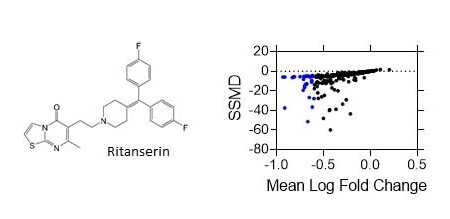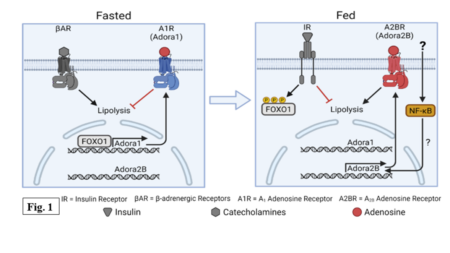
Identification of ritanserin analogs that display DGK isoform specificity
Granade et al., Biochem Pharmacol. 2022 Mar;197:114908
The diacylglycerol kinase (DGK) family of lipid enzymes catalyzes the conversion of diacylglycerol (DAG) to phosphatidic acid (PA). There are few small molecule DGKα inhibitors currently available, and the application of existing compounds to clinical settings is hindered by species-dependent variability in potency. In order to resolve these issues, we have screened a library of compounds structurally analogous to the DGKα inhibitor, ritanserin, in an effort to identify more potent and specific alternatives.
Read More



